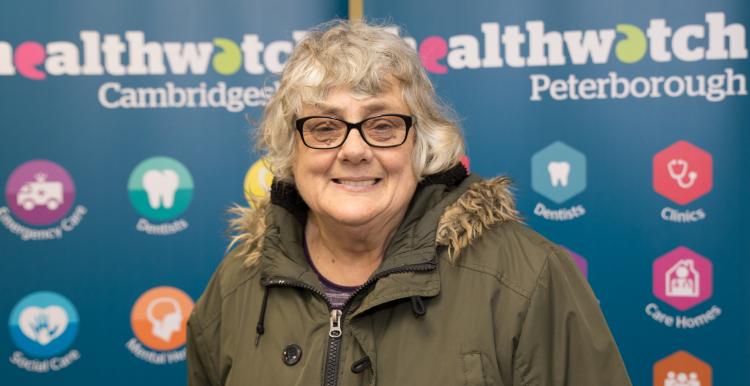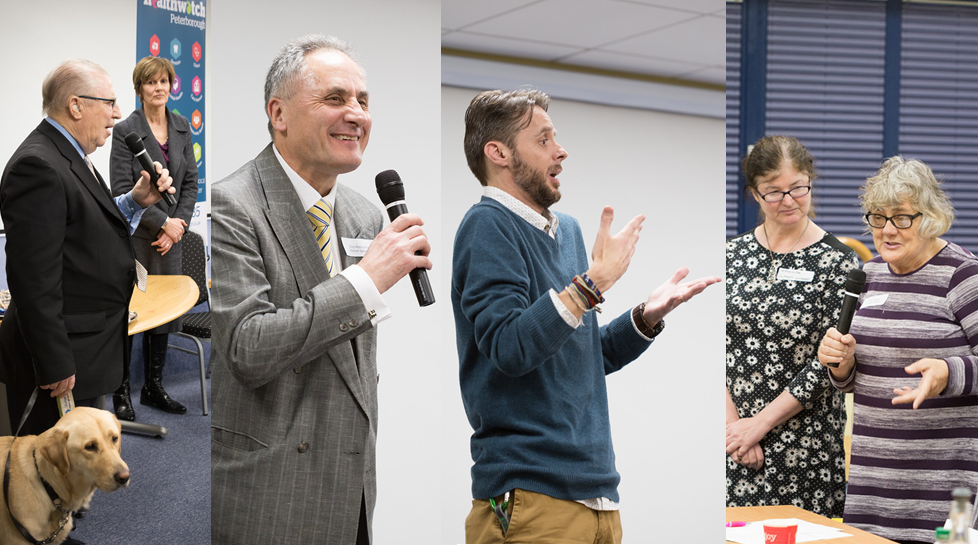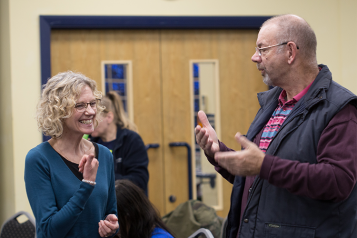Healthwatch helps to improve accessible information for disabled people

This thanks to the work that we and other local organisations have done to raise awareness of the problems local disabled people can have getting the information they need.
For our Accessible Information project, we joined forces with other local disability organisations to listen to and share the stories of people with sensory and learning disabilities in Cambridgeshire and Peterborough. This includes organisations like Cambridgeshire Deaf Association who have a long-standing deaf health campaign.
The resulting 'Accessible Information as Standard' report, published in November 2017, found that health and care services were not always giving people with sensory and learning disabilities information in a format they could understand.
The Accessible Information Standard says that health and care organisations must:
- Ask if you have any information or communication needs and find out how to meet them.
- Record what you tell them and flag it on your record.
- Share this information with any health or care organisiation they refer you to. They will need your consent to do this.
- Make sure you always get any information in a way you can understand.

At our launch event in November last year, our patient speakers Peter, Enzo, Jason and Sylvia told us about their experiences of care.
Peter explained the difficulties of trying to access his GP’s booking system while deafblind. Enzo talked about his work providing staff at Peterborough City Hospital with learning disability awareness training. Jason, who is Deaf, told us about a difficult and scary visit to A&E where no sign language interpreter could be found for him. Sylvia described her frustration at not being able to access information about her health in easy read.
Read our report
You can find our report in easy read, standard English, large print, giant print and audio.
What Healthwatch did next
We used our statutory Healthwatch powers to make sure that local health and care organisations listened to the problems that people with disabilities told us they were having. Our report told local health and care organisations that:
- Staff need to know about the Accessible Information Standard and their responsibilities to people.
- Services need to be able to show that people have understood their treatment and said yes to it.
- Services should make sure people can talk with them properly, for example, being able to reply to texts to check that support has been booked.
How things are changing
Since then, we have been following up with local health organisations to ask what they are doing to improve access. Here are a few of the changes that have occurred in the last 12 months:
- Hinchingbrooke and Peterborough City Hospitals have introduced SignLive in their emergency departments. This provides a 24 hour a day emergency online British Sign Language Interpreter for Deaf people via a tablet.
- Addenbrooke’s and the Rosie Hospitals have introduced a reply to text for outpatient appointments. This helps Deaf people check details.
- Cambridgeshire and Peterborough NHS Foundation Trust have improved staff training around accessibility.
